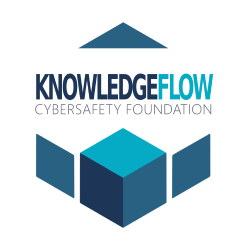Top 7 Public Education Cybersafety Principles
Attention principles! The internet is a powerful research tool but also a source of deceptive content and disinformation. This duality can threaten the cybersafety of schools, the integrity of administrators, and the reputations of school boards and districts.
The vast educational benefits of information accessibility are clear, yet the risk of misinformation spreading and undermining trust is equally significant. Educational institutions should carefully vet speakers and organizations delivering content, especially in cybersafety education, to uphold a secure and credible learning environment.
Learn more ways to keep safe online!
Check out our available courses down below.


About this Resource
This resource empowers school leaders and educators to navigate a complex digital landscape by offering guidelines for selecting trustworthy cybersafety and digital media literacy resources.
Ensure the material presented to students is accurate and beneficial by making informed decisions about invited speakers and organizations that align with educational goals and uphold integrity standards.
Safeguard students, maintain institutional credibility, and cultivate a safe and informed school environment with this essential guide.
TEXT VERSION
top seven Public Education Cybersafety Principles
Embrace these principles, while avoiding events, speakers and organizations that introduce themselves through personal and professional connections and charismatic approaches to self-promotion:

Principle 1 — Fear-based messaging is always an indicator of illegitimacy
Only certified professionals should be invited to make presentations about technology, social media, privacy protection, and cybersecurity topics. Professionally certified experts must regularly attend recertification training that requires them to attest to not employing fear, uncertainty, and doubt in their activities.

Principle 2 — Do your due diligence on vendors or experts, whether the service is free or not
If the expert does not possess a consistent track record of professional excellence in their field, avoid amplifying the message and inform parent councils, the school board and other staff to look for more credible professionals.

Principle 3 — Assiduously review the educational materials, presentation content and any handouts being proposed to look for indicators of legitimacy
The absence of such credible materials can indicate that an organization, group or individual represents a risk to the reputation of the school, liability for the school board and risk of misinformation to audiences.

Principle 4 — As part of your review, ask for proof of business and cyber insurance to ensure the organization is legitimate, adequately covered and properly registered as a legal entity
Although ‘passionate’ parents and even professionals with ‘experience’ may be tempting to invite, tolerance for such parties can expose the institution and audiences to disinformation, confusion and memorable trauma as self-described experts always seek to make a lasting impression.

Principle 5 — Self-promoters look for opportunities to further market themselves by asking for professional endorsements, photos with staff and sometimes even students
These should be denied to avoid liability and privacy violations, among other risks.

Principle 6 — Recommendations and endorsements are not enough
Digital literacy comes from dedication and commitment to a profession that requires consistent education. Request, require and obtain a set of current professional certifications or accreditations in the exact field being proposed, to ensure that the subject matter expert is qualified to present on the matter at hand and not a field in which they have no credibility.

Principle 7 — Question the fees
High prices indicate a for-profit business. Low fees should be questioned to understand whether profit is generated from other aspects of the service delivery, such as access to personal information, audience tracking, ongoing contracts, or parlaying the event into other opportunities. Finally ‘freebies’ should be scrutinized to ensure they are not a ‘commercial’ for a product or service offered by a profit-oriented organization or individual speaker.
Principles for Principals Tipsheet
KnowledgeFlow can help review promotional material, give our opinion and help with due diligence.
To contact us, please send an email to contact@knowledgeflow.org

platform for teachers
Cybersafety for your classroom
At KnowledgeFlow, we emphasize the significance of cybersafety education for both educators and students. Understanding and teaching essential cyber safety practices can protect both teachers and students from online risks. By fostering safe technology use in the classroom, students can learn to navigate the digital world securely. Learn how to create #UnHackable classrooms!

